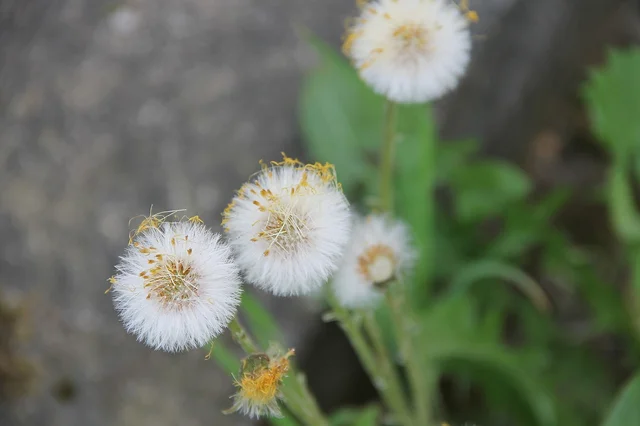What is Coltsfoot?
Coltsfoot is an herbaceous perennial plant that grows in Europe and Asia. The ancient Greeks and Romans used it to treat respiratory ailments such as asthma and bronchitis. It was also used as a remedy for colds, coughs, and other symptoms. It is known by other names, such as "Coughwort" or "Ass Ear", due to the large furry leaves that resemble ass ears.
Coltsfoot can still be found in many traditional medicines, including herbal teas and syrups. Coltsfoot is used for respiratory problems, digestive disorders, and expectorants. It has anti-inflammatory and bronchodilator qualities. Some studies have also suggested that Coltsfoot has anti-cancer effects.

Coltsfoot and its purported health benefits
Coltsfoot is believed by many to relieve the symptoms of respiratory diseases such as asthma and bronchitis. Coltsfoot is believed to contain compounds which act as bronchodilators. This can relax muscles and decrease Inflammation in the airways, making it easier to breathe.
Coltsfoot also has expectorant qualities, meaning it can help to clear the mucus in your lungs. It can reduce coughing, and also make breathing easier. Coltsfoot can also be used to relieve sore throats, reduce throat inflammation and soothe the chest.
Some research has also suggested that Coltsfoot could have anti-cancer qualities. Recent research has found that Coltsfoot compounds may be able to reduce certain cancer cell growth. These potential benefits need to be further investigated.
Coltsfoot is best treated by:
- The herb is thought to be anti-inflammatory and expectorant, as well as a bronchodilator.
- This herb is used for respiratory problems, digestive disorders and other ailments.
- Coltsfoot has been shown to have some anti-cancer effects.
- Consult your physician before using Coltsfoot.
Experts and professionals share their opinions on Coltsfoot
Coltsfoot is generally regarded as beneficial in treating respiratory problems by experts and professionals. They caution, however, that Coltsfoot should only be used under the supervision of a health professional as it may interact with certain medications, causing side effects. Coltsfoot has not been studied enough by experts to prove conclusively its efficacy and safety.
For instance, Dr. William Sears is a pediatrician who wrote "The Complete Guide to Natural Medicine." He recommends Coltsfoot to treat respiratory problems, but warns it can interact with some medications. It should never be used without first consulting your doctor. Coltsfoot is not recommended for children younger than two years.
David Williams is a naturopathic doctor and the author of Alternatives. He also endorses the use of Coltsfoot for respiratory problems, but stresses that the remedy must be used under the guidance of a healthcare professional. Coltsfoot is also not recommended for pregnant women or nursing mothers, because there are not enough studies to prove its safety.
Coltsfoot: How to start?
It is essential to discuss with your doctor any potential interactions between Coltsfoot and any medications that you are taking. Also, any health issues should be discussed. You should also follow the dosage as too much may cause side effects. Coltsfoot dosage varies according to the condition that is being treated. It usually ranges between 250 and 500 milligrams a day.
You can take Coltsfoot as a capsule, tea, syrup or tincture. When taking Coltsfoot as tea, you should steep 1 teaspoon dried Coltsfoot in boiling water for at least 10 minutes. Mix equal amounts of Coltsfoot Powder and honey to make a simple syrup. Take one teaspoon, three times per day. To make a tincture mix Coltsfoot powder with alcohol in equal parts and take 30 droplets three times daily.
You can find Coltsfoot online or in health food shops. Coltsfoot should only be purchased from trusted sources, since the quality can differ greatly. It is also important to look for the Latin Tussilago Farfara on the label to make sure you're buying the right plant.
What are the side effects or disadvantages of this treatment?
Coltsfoot, when taken at the dosages recommended by your doctor, is considered to be safe. Taking too much Coltsfoot can cause nausea, dizziness, vomiting and other adverse reactions. Coltsfoot can also interact with some medications. It is therefore important to consult your doctor prior to taking this herb.
Coltsfoot can also cause an allergic reaction in some individuals. This may manifest as a rash, swelling or breathing difficulties. Coltsfoot should be stopped immediately if any of the symptoms are experienced. Seek medical help if you experience these symptoms.
Coltsfoot is also not recommended for pregnant women or nursing mothers, because there are not enough studies to prove its safety.
Conclusion
Coltsfoot, or Tussilago Farfara is a herbaceous native plant to Europe and Asia. It has been used as a medicine for hundreds of years. The herb is thought to possess anti-inflammatory and expectorant properties. It's often used for respiratory problems. Some research has also suggested that Coltsfoot might have anti-cancer effects. It is best to consult a doctor before taking Coltsfoot as certain drugs can cause negative side effects.
Coltsfoot, a herbal traditional remedy for respiratory problems may relieve the symptoms. It should, however, only be used under the supervision of a health professional and dosages should be strictly followed. Coltsfoot should also be avoided by pregnant women and nursing mothers, since there are not enough studies to prove its safety.
.